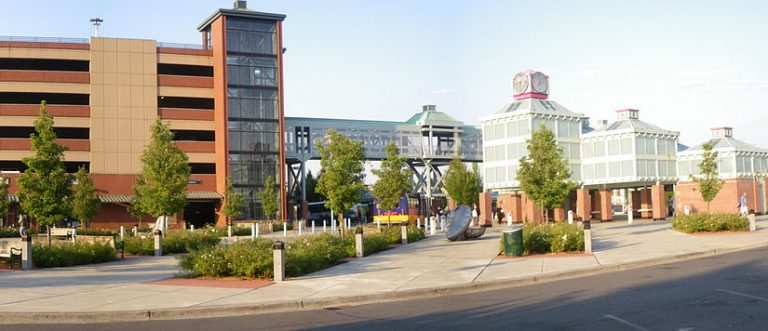Published on March 16, 2017

Teams of University of Washington students have been working throughout this academic year on livability and sustainability projects in the City of Auburn. The yearlong Livable City Year partnership has given students a chance to work on real-world challenges identified by Auburn, while providing Auburn with tens of thousands of hours of study and student work.
Livable City Year connects UW faculty with projects based in Auburn, which are then incorporated into their classes. The program started this year, partnering with Auburn for the 2016-2017 year. This fall marked the first quarter for the program, when students in seven courses tackled 10 separate projects. The final reports from these projects are now complete.
“The very first Livable City Year projects were a success due to the hard work of our students and faculty, along with crucial guidance from Auburn city staff. It’s been an exciting process of co-creation,” said Livable City Year faculty co-director Branden Born of the Department of Urban Design and Planning. “The student teams working on these projects have worked to provide real benefits for the residents of Auburn, while also gaining real-world experience and a connection to the community.”
Students in Livable City Year courses spend at least one quarter working on a specific project identified as a need by Auburn. The student teams work with Auburn staff and community stakeholders as they conduct research and work on the projects.
Fall projects included assessments of Auburn’s work in reducing homelessness among the community, educational strategies to reduce pet waste and improper household items in wastewater, cultural city mapping, city values outreach, work on community place-making, and more.
“The projects that these students have taken on are at the core of many of our city’s major initiatives,” Auburn mayor Nancy Backus said. “Their work and dedication through the Livable City Year program has helped us make major strides forward in areas that are critical to the health, safety and happiness of our residents.”
After the quarter’s research work is completed, a student or student team works with Livable City Year’s editor and graphic designer to prepare a final report for the city, including any recommendations or possible future steps. By having several coordinated student teams across disciplines working on various projects, the Livable City Year program provides the City of Auburn with ways to enhance sustainability and livability elements within existing and future projects and programs.
The UW’s Livable City Year program is led by faculty directors Branden Born with the Department of Urban Design and Planning and Jennifer Otten with the School of Public Health, in collaboration with UW Sustainability, Urban@UW and the Association of Washington Cities, and with foundational support from the College of Built Environments and Undergraduate Academic Affairs.
While the fall project teams have completed their reports, this winter students have been working on projects including reducing food waste in school cafeterias; researching the costs, challenges and benefits of low-impact development stormwater technology; and better connecting Auburn’s residents socially, culturally, and economically.
Senior Ariel Delos Santos was one of the students in Born’s fall class which looked at connectivity and community place-making in Auburn.
“Working with the LCY program brought a novel component to our educational experience. Instead of a standard classroom setting where our homework is only seen by the professor, our final products were intimately tied to the city and its community members – which greatly motivated us to do more work and be more attentive to those who will be affected,” said Delos Santos, a senior double major in Community, Environment & Planning and Aquatic Fishery & Sciences. “As a student, I loved how closely I was able to work with my peers regularly and the camaraderie that we built. I definitely learned how to maintain professional relationships, accountability, communication, and my natural role in team settings.”
For more information, contact Born at bborn@uw.edu or 206-543-4975; LCY program manager Jennifer Davison at jnfrdvsn@uw.edu or 206-240-6903; and Jenna Leonard, Auburn’s climate and sustainability practice leader, at jleonard@auburnwa.gov or 253-804-5092.
This story was written by UW Livable City Year